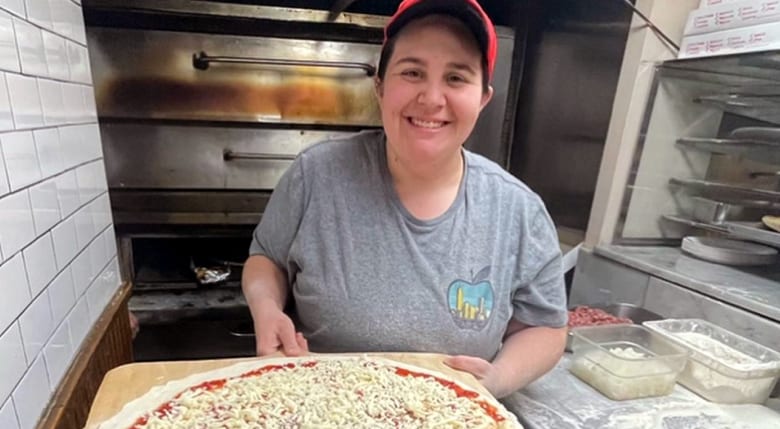Live in any one area long enough, and you’ll probably notice how some restaurants tend to stick around – year after year, always there, not just part of the neighborhood but an almost iconic feature.
What are these restaurants that have been around for multiple generations doing right? Is there some secret in the sauce that all businesses should be paying attention to and adding to their own recipes for success? Restaurants that remain in business year after year, decade after decade – clearly their food is something special.
If you own a restaurant and are looking to build an enduring legacy, here are some business strategies you might consider putting on the menu.
Respect the Past
Restaurant owners could learn a lot from Ron Salisbury, who owns a El Cholo, a Mexican restaurant his grandparents started in 1923. Salisbury is 90 years old and still fully active in running El Cholo.
Salisbury oversees six El Cholo locations in Los Angeles, including a seventh opening this year in Salt Lake City. (One of his sons independently owns and runs another El Cholo in Pasadena.)
But while Salisbury has been running El Cholo since 1954, when he was 21, he wasn’t somebody who came into the business ignoring what his parents and grandparents had been doing since 1923.
While El Cholo opened during the Roaring '20s, Salisbury says that the Great Depression probably helped his grandparents and parents sharpen their business skills.
“They really followed some basic business tenets,” Salisbury says, “which was working to the best of your ability and not compromising, and they were obsessive with details. And I think that helped me get off to a good start.”
But when Salisbury mentions that he had “the highest respect” for his grandparents and parents, it’s easy to start wondering – is that why some restaurants don’t succeed? It’s easy to imagine that if you don’t respect what earlier generations did to make a restaurant a success, you may steer the restaurant in the wrong direction.
About five miles away from El Cholo is The Musso & Frank Grill, a fine dining restaurant in Hollywood, which opened for business in 1919. The two original owners sold the restaurant to two Italian immigrants in 1927, Joseph Carissimi and John Mosso, and while the Carissimis ran it with the Mossos for years, it’s now owned and operated by John Mosso’s three granddaughters and their children.
Mark Echeverria, CFO of The Musso & Frank Grill, says that respecting the past has always stayed with him as a restaurant owner. His family’s core values have always been that of “honesty, integrity and respect," he says. "These values are something I grew up with, and my parents practiced them in all aspects of life. I saw how dedicated the whole family was to them once I got involved in the restaurant,” Echeverria says. “Our board of directors consists of my parents, two sets of aunts and uncles, and my cousin. Shortly after I took on the day-to-day operations in 2009, we would be in board meetings, and all the decisions that were being made were always through the lens of these values. That’s when it started to really come around for me, that in order to protect the future vitality of this restaurant, I had to emulate this process into every decision I made, big or small.”
But Don't Forget to Prepare for the Future
While Salisbury has stuck to his grandparents’ and parents’ formula, he has nonetheless enthusiastically modified it. In the 1970s, he doubled the size of the dining room and over the years has added additional El Cholo restaurants. In 1977, Salisbury ended up founding The Restaurant Business, Inc., a restaurant management company that oversees El Cholo and two other restaurants, The Cannery and Louie’s By the Bay. Salisbury also, over the years, has finessed the El Cholo menu, but he isn’t one for overhauling it.
“We don’t change the menu, but we tweak things all the time,” he says.
Salisbury also recognizes that in order to win the future, you have to prepare for it, and that at 90, it’s not a bad idea to have a succession plan in place. His son, Brendon, 35, the youngest of seven kids, is the CFO of The Restaurant Business, Inc. Salisbury, who has 18 grandkids, also has six great-grandchildren; one is studying marketing in college and may join the family business. She would be the sixth-generation family member involved with El Cholo and the other restaurants.

Victoria Tiso is the general manager and a future owner of Louie & Ernie’s Pizza, a pizzeria opened by two brothers (Louie and Ernie Ottuso) in 1947 in Harlem before moving to the Bronx in 1959. Victoria’s father, John Tiso, and uncle, Cosimo, began working at Louie & Ernie’s Pizza in the 1980s and ended up buying the place. Victoria will eventually buy out her father and will co-own Louie & Ernie’s Pizza with her uncle, until his kids presumably buy him out.
If the original Louie and Ernie were still around, they would recognize the pizza, but little else – because like all restaurants, the place has changed with the times.
“The business now has truly expanded and transitioned for the future generations,” Tiso says, saying that they’ve got a full presence on social media and online delivery platforms, using Slice, a technology platform that specializes in assisting pizzerias.
But while the pizzeria is undoubtedly entrenched in the 21st century, it’s a restaurant that has become iconic in the community because of its enduring popularity. For instance, when sneaker company FILA decided to create a line of shoes inspired by five pizzerias in the five boroughs that make up New York City, one of those was Louie & Ernie’s Pizza.
Treat Your Employees Well
According to Salisbury, it's important to treat all of your employees with respect – and to go out of your way to see how the dishwasher is doing, often a job that is ignored and underappreciated. “Nobody talks to them,” Salisbury says. “You need to let them know they’re important.”
He also has a reading program for his employees. There are probably about 60 books on the list, from history topics to novels. If employees read the book and do a two-page book report on it, Salisbury will pay them, anywhere from $25 to $100, depending on the book.
The number one reason family business transitions are not successful is a lack of communication and trust followed by inadequate preparation of the next generation.
—Carol Butler, president, Goering Center for Family and Private Business at the University of Cincinnati
“Work is just another school in life,” Salisbury says, “and I want my employees to be able to say they’re better citizens when they leave.”
If they leave. In an industry famous for its turnover, about 10% of the staff have been working at El Cholo for more than 20 years.
Hiring people with positive attitudes in the first place is also important, Salisbury says. “You can teach people the restaurant trade, but you can’t teach good attitudes, no matter how hard you try.”
And Treat Your Customers Well, Too
This also goes without saying, but Echeverria has an interesting anecdote about how years ago, an upset customer complained when The Musso & Frank Grill raised the price of lamb chops.
“I invited him and his wife in to have dinner with me so I could explain the increase and our philosophy,” Echeverria says.
That guest is now one of the restaurant’s most frequent customers.
Communicate Well With Your Family Members
This may be most important of all, according to Carol Butler, president of the Goering Center for Family and Private Business at the University of Cincinnati. Since 1989, the Goering Center has been studying family businesses and working with family-owned companies in the Cincinnati, Ohio area.
“The number one reason family business transitions are not successful – is a lack of communication and trust followed by inadequate preparation of the next generation,” Butler says. “One can conclude, and we have experienced, that with families that have great communication and trust and preparation, the next generation is likely to be more successful.”
Love Your Business
Finally, it helps when a family business loves the business. This sounds obvious, but some people don’t want to be handed the reins of a family business – and so it’s no wonder if a lack of enthusiasm encompasses the brand.
But when a restaurant owner loves what they do, that translates, too. The way Tiso talks, it’s clear she sees her job as more of a calling than a way to make a living.
“When we think about the future, we know that the business will always be part of the family. I truly don’t think selling is ever a thought,” Tiso says. “Anyone who comes into our pizzeria knows we are all family who work here. We pride ourselves on hard work and dedication to the craft. My dad and uncle have been doing this for 40 years. My dad has put all his trust in me now when I’m running the shop. I know he’s super proud of me, and I love being a woman, making pizza. It’s not seen enough in the industry.”
Tiso adds that her uncle’s three daughters work at Louie & Ernie’s Pizza and are learning the business as well.
“I can’t speak for them, but if they decide to take on the family trade like their dad, we would be an all-women owned pizzeria,” Tiso says.
Echeverria echoes a similar sentiment. “We have had many offers over the years to sell. Those conversations are usually very, very short. Musso’s will always be a family-owned restaurant,” he says.
Salisbury talks about his relationship with his restaurant as a “love story” and remembers how, when his parents owned El Cholo, he would walk through the place at night, after all the customers were gone, and he would admire the stove.
“Now, saying that out loud, that sounds funny,” he admits. But Salisbury says that he really did love the idea of someday running and owning a restaurant.
“I loved solving problems to make our restaurant better,” Salisbury says. “Some of the best times have been solving problems that we had and feeling good about solving them.”

